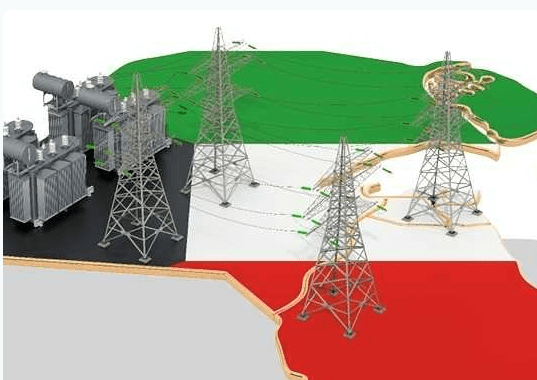Kuwait may once again face similar situation when the country in 2006 faced power crises and experts have warned of a programmed power cuts at the height of summer, which affects people’s lives and the economy.
According to statistics issued by the experts, the country is expected face a shortage of electric power supplies in the summer of 2024 and 2025, and it may extend to 2027, reports Al-Qabas daily.
Oversight reports have warned of a shortage in the supply of electric power due to the decision of the Planning Committee in the Ministry of Electricity and Water, and the problem was according to Ministerial Resolution No. 30/2017, which called for postponing some projects of power plants.
Informed sources said that in the event of a shortage in the production of electric power, the Ministry of Electricity and Water may have to reduce electrical loads by cutting off electricity to some consumers, as happened in the eighties of the last century, during the peak times of the summer, or rather the noon times, pointing out that cutting Programmed electricity may reach all regions equally at different periods.
Regarding the Gulf interconnection project, the sources stated that it will not contribute in an integrated and safe way to providing the required electrical energy, and that the high cost of buying energy at peak time, when most Gulf countries need energy as well, in addition to that the Gulf interconnection is designed for emergencies, and has limited operational capacity.
The Ministry of Electricity and Water is in need today of international advisors to provide technical support and the necessary expertise, which the ministry lacks in several fields following the termination experts which has left a great void in the technical management.
Seven reasons that may cause power shortage
— Delaying the construction of new power plants.
— Poor planning and forecasting of energy needs.
— The Partnership Authority’s delay in offering new stations.
— The Ministry of Electricity dispensing with international expertise in planning.
— Weakness and low performance and expertise of some senior officials in the Ministry of Electricity.
— The long documentary cycle for approving and submitting power plant projects.
— The construction of power plants requires the allocation of huge budgets.
Eight possible solutions to the electricity crisis:
— Implementation of water generation and desalination plants under the independent supplier system, whereby the private sector finances, builds, operates, manages and maintains power and water production plants and sells electricity to the state at a reduced price.
— Dispensing with the partnership system, and transferring all construction projects for power plants to the Ministry of Electricity to offer them under the independent supplier system to the private sector.
— Expanding the involvement of the private sector in financing, building and operating generation and water desalination plants, as is the practice in the Gulf countries and the world, which saves the state from spending billions on these projects.
— Introducing solar electricity production stations with the independent provider system, whereby the private sector fully finances, implements, maintains, manages and sells electricity to the state. This is considered the best solution to the upcoming crisis due to the low cost of energy purchase pricing and the speed of completion and operation of solar power plants and electricity production within about a year.
— Transforming the Ministry of Electricity and Water into a governmental and private corporation and company, as is the case in the Gulf countries, which contributes to providing better services and reducing costs for the state.
— Offering solar power plants to the private sector, provided that they are implemented by the independent provider system, while expediting the offering and awarding procedures.
— Canceling the partnership system in all construction projects for power generation and water desalination plants.
— The use of international consultants to conduct studies and long-term strategic planning, to provide energy and water, and to provide technical support to the Ministry’s apparatus.

















